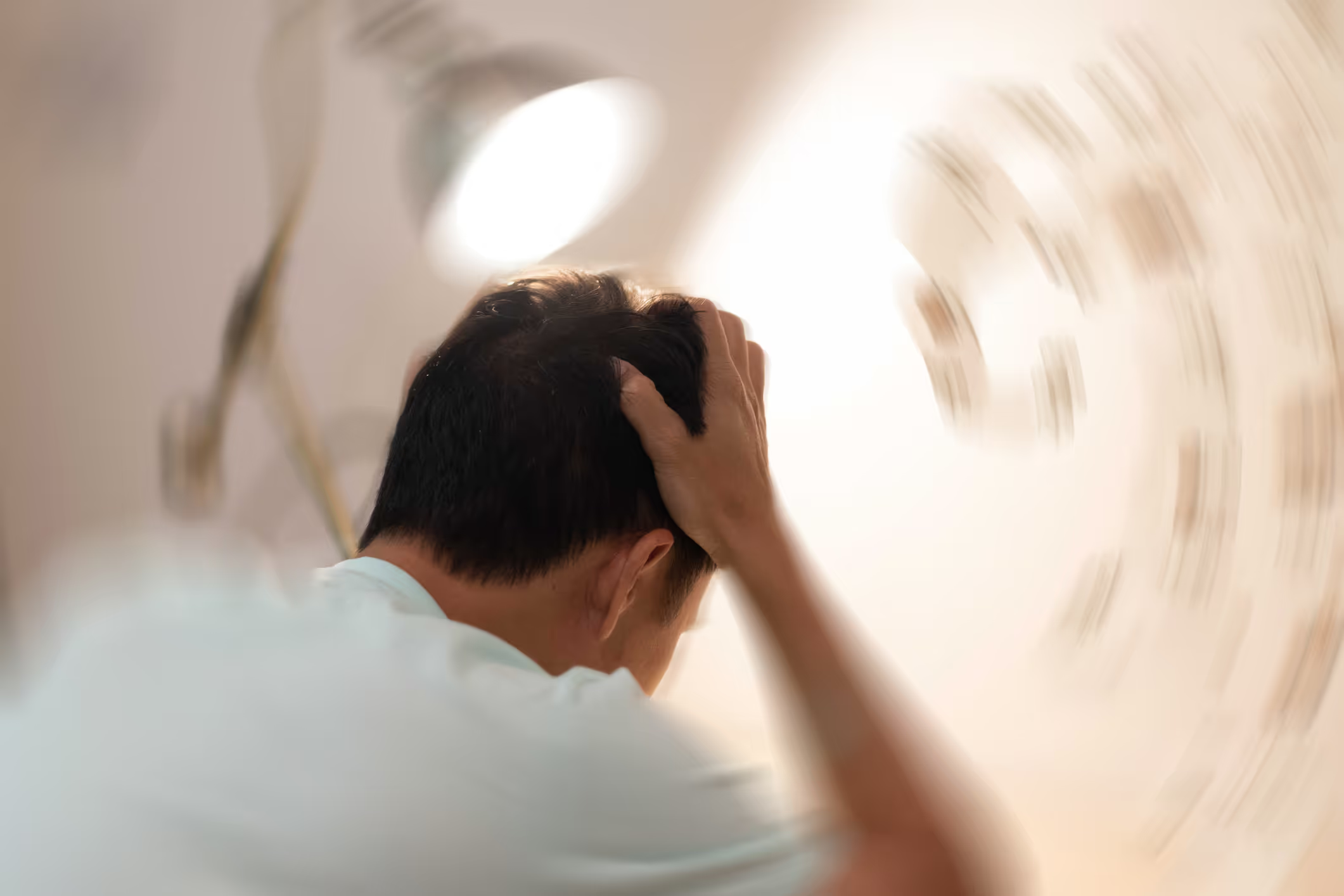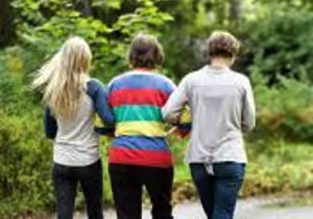Business leaders have slowed down the disease
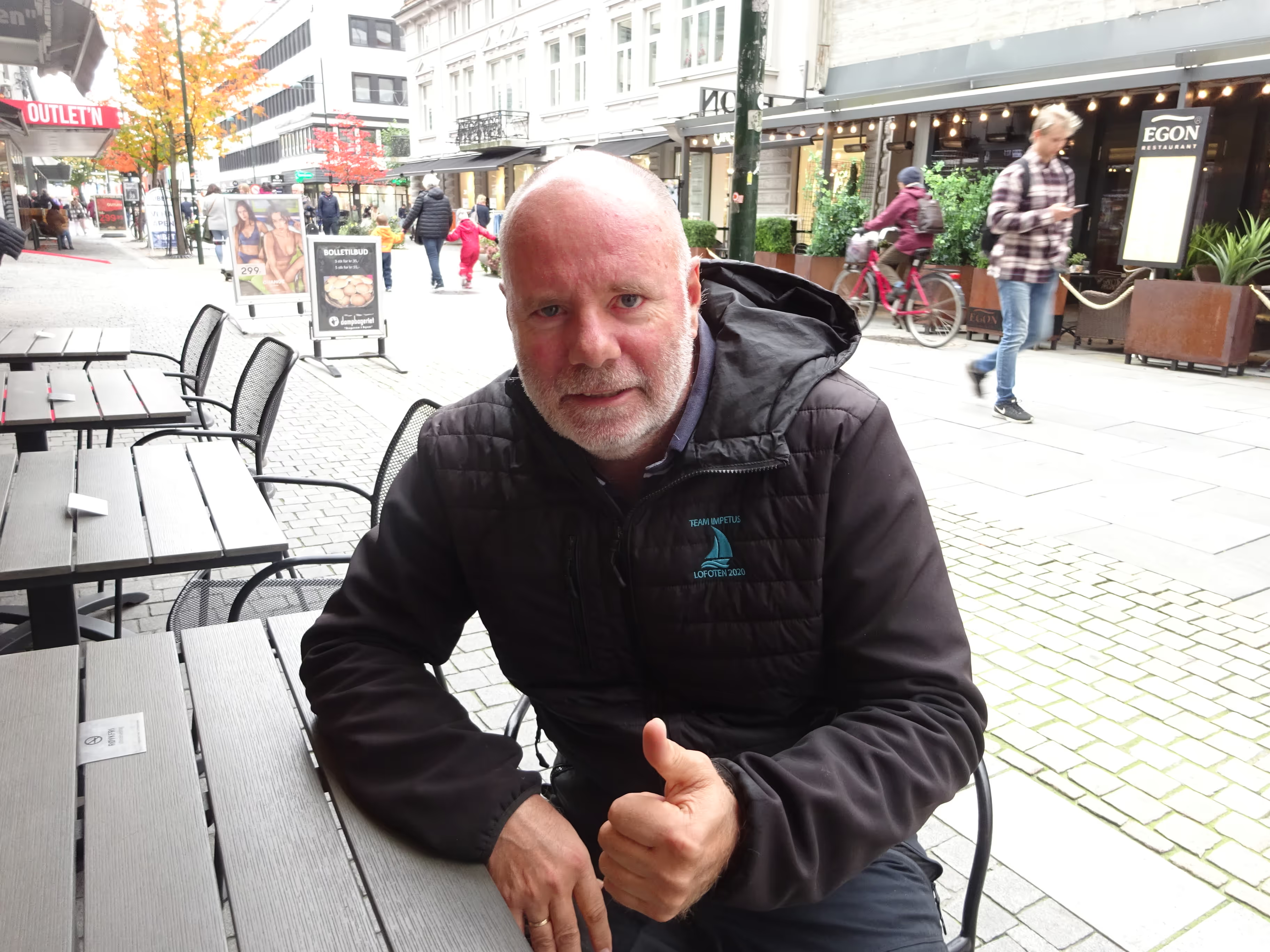
Good treatment makes me feel like I'm now a leader in my Parkinson's disease.
"Today I have improved my test results at BrainCamp and I had to send a message to my family that it has gone so well. I'm so proud of myself," says Bjørn Skare.
Businessman Bjørn Skare was diagnosed with Parkinson's disease 8 years ago
The business leader, who previously traveled 270 days a year, scaled back and was told to change his lifestyle. When he then suffered acute heart problems and was rushed to hospital in dramatic circumstances, with the news that he might not live to see the next morning, it was necessary to take active steps.
- It was a frightening experience and I, who consider myself a fairly safe person, started to feel unsafe," says Bjørn Skare.
Became the seed of a better life
Having both an acute heart problem and then Parkinson's disease was a wake-up call for the busy investor.
- At first I felt that it was very unfair that I was going to get all this. Now I've learned that it was the seed of a better life. I decided that I would live to be 90 and make the most of my life," says Skare.
He left his position as operations manager and is now chairman of the board and an investor in companies in which he has a stake, so the number of working hours has been reduced.
- "I've retired from a stressful work situation. Now I go to rocksteady boxing training that is adapted to those of us with Parkinson's and I receive neurological training here at Brain Camp in Kristiansand. I think these are keys to a better life," Skare points out.
Trying to enjoy life
Today, he lives at the cabin at Norefjell in the winter and has 60 skiing days a year. In the summer, he spends time at the cabin in Hvaler or sailing in Greece, and only a few nights a year he visits the house he calls home.
- "With Parkinson's, I feel that I have little time and have to spend it while I can, doing what I like. The positive thing about all this is that I get more quality time," says Skare, who has also become involved in the Parkinson's Association's community, where he enjoys the great people and activities.
Each patient receives customized treatment
Research shows that neurological diseases such as Parkinson's disease and multiple sclerosis also cause secondary functional disorders that make it more challenging for the brain to coordinate and process multiple sensory impressions simultaneously. This also makes it more challenging for the brain to coordinate the activation of different areas, which have different properties, according to Brain Camp. These functional disorders are probably the reason why many people with neurological disease and acquired brain injury experience poor relief from standard physical treatment such as muscle and joint treatment and physical exercise.
It is several years since Bjørn Skare became aware of Kim Tore Johansen and BrainCamp's treatment for Parkinson's patients, among others.
- He immediately caught my interest because of his belief in individual follow-up. What I really believe in in Kim Tore Johansen's treatment is the individual analysis and the digital tests he runs. This provides a customized follow-up for my neurological situation," says Skare.
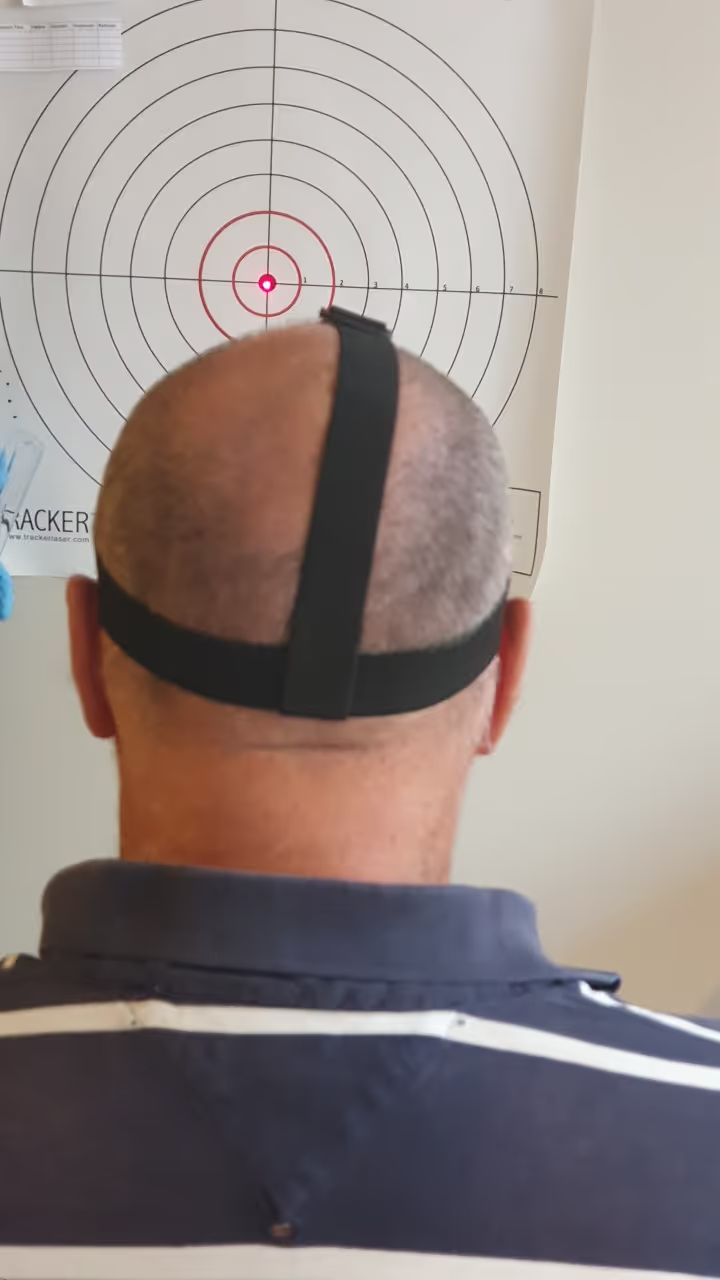
Testing with the help of technology
We go into the testing room and observe when Bjørn Skare has equipment attached to his head and is about to carry out various tests, which are measured against the same tests he took several months ago.
- This has helped me. Here I see on the digital tests that my eyes are shaking and my brain tries to correct this. After the exercises I've done, my eyes shake less and in practice this means that I'm now less tired in the afternoon than before," Skare explains. Chiropractor Kim Tore Johansen says that his main focus when working with Parkinson's patients is to tailor exercises based on what the tests show and how the tests change after rehabilitation.
- "We work to find exercises that can reduce the severity of the symptoms, whether it's the intensity of the tremors or improving flexibility in movements, balance and fine motor skills. We want to make it easier for them to perform everyday tasks," explains Kim Tore Johansen.
Celebrating good test results
He adds that research shows that the development of the disease can be slowed down by good rehabilitation.
- "We can't stop the disease, but we can influence it so that the negative development of symptoms is slower," he adds.
Bjørn Skare is a happy man after completing his testing at Brain Camp.
- "Today I have improved my test results here at Brain Camp in Kristiansand and I had to send a message to my family that it has gone so well. I'm so proud of myself," says Bjørn Skare. He has also struggled with persistent pain in the right side of his leg, thigh and arm.
- "Now I'm absolutely ecstatic to have gotten rid of these pains. I firmly believe that it is due to a combination of physical training and neurological training. The progression of the disease has been much slower than expected, thanks to these forms of treatment," Skare believes.
- "I'm incredibly happy that the pain is gone, after I've trained on an exercise program I get from time to time. It's so reassuring to see that the tests here at Brain Camp are getting better and I'm convinced that this is working. The latest check-up with my neurologist shows that the progression of my Parkinson's disease has been at a standstill over the last few years. I have also been part of a research project researching Parkinson's disease since 2018. The latest re-test with them shows that I have the same score on their tests now in 2023 as I had in 2018. According to the professor who is following me up in this study, I'm the only one he has seen this," Bjørn says.
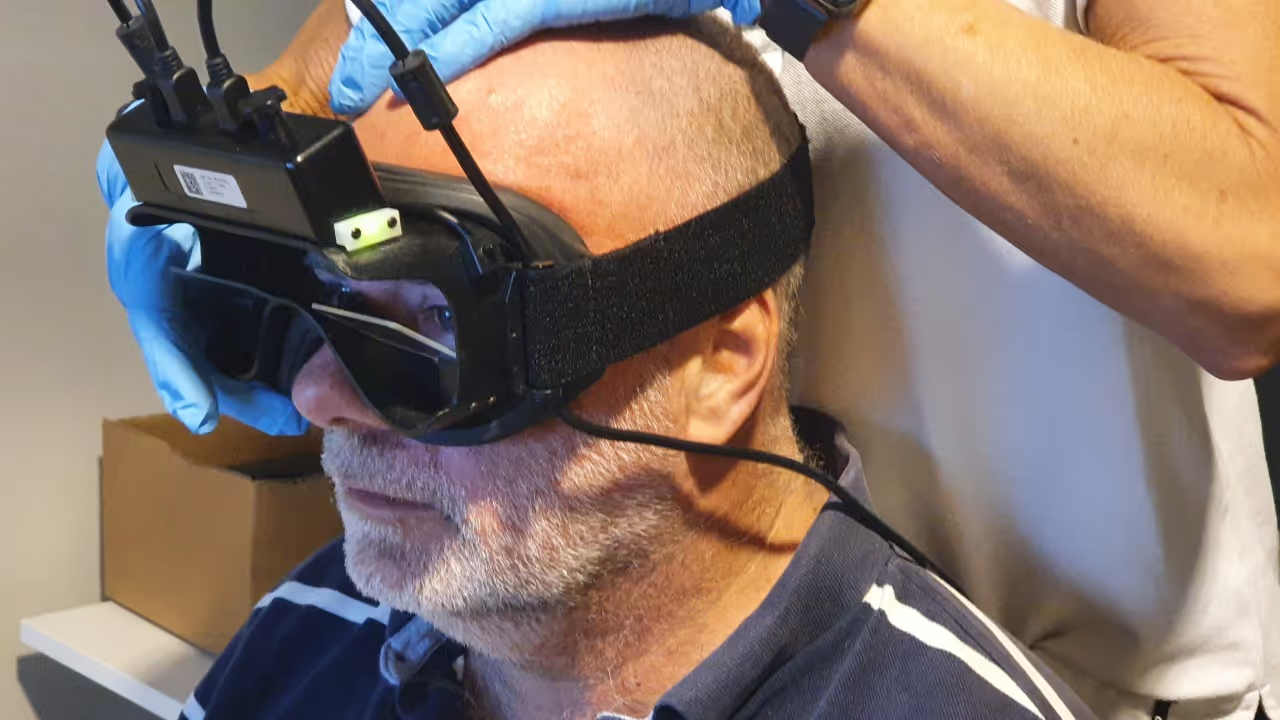
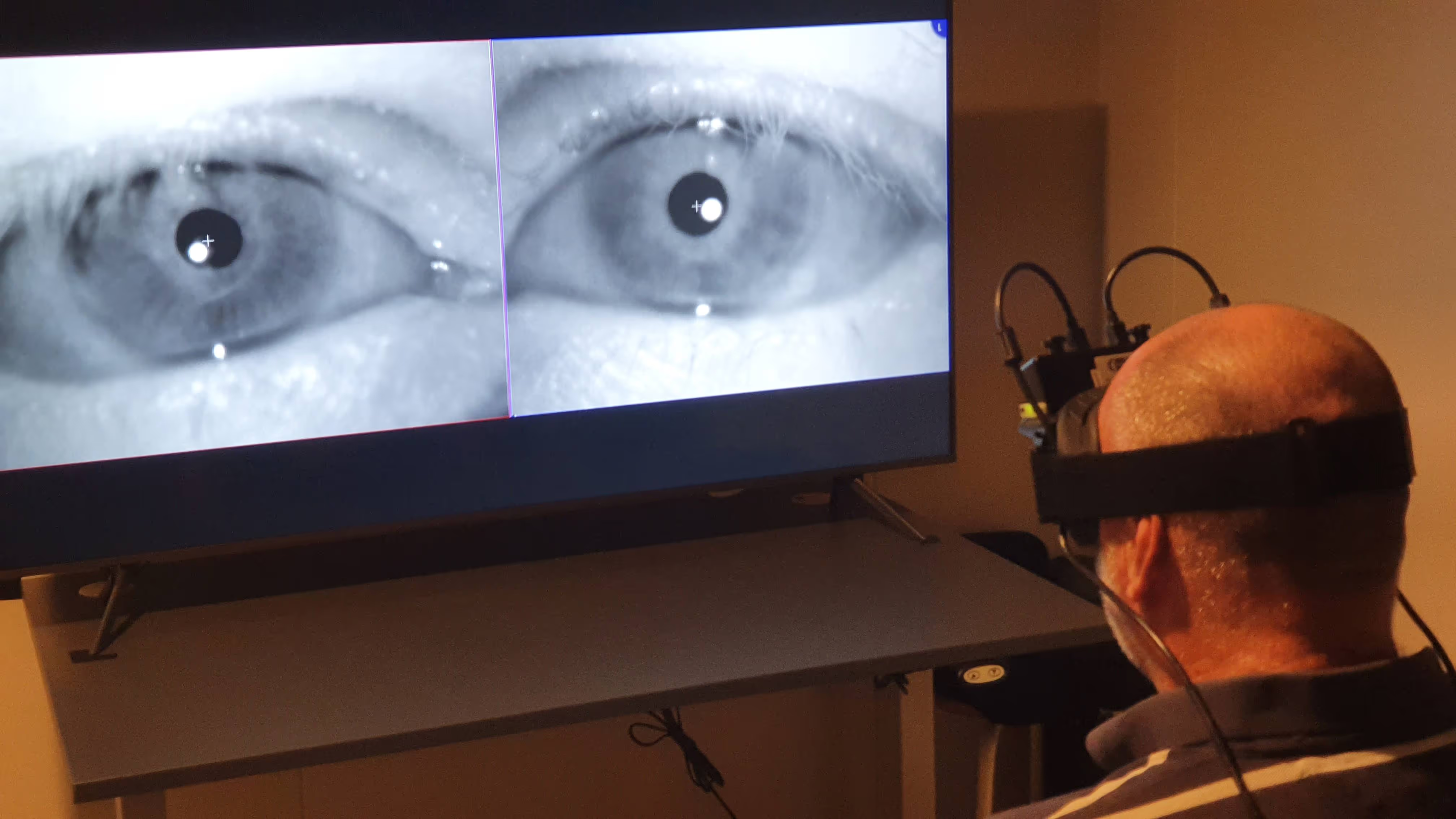
Stiffness and pain are gone
Kim Tore Johansen at Brain Camp confirms that they can see positive changes for Bjørn on computer-based tests.
- He no longer suffers from stiffness and pain in his right side, and his balance, coordination and fine motor skills are better than before. He also has significantly less tremors," says Johansen.
Bjørn Skare regularly spends a week at Brain Camp in Kristiansand, where he can test and adapt new exercises in line with his condition. Brain Camp has extensive experience in facilitating patients from other parts of the country or the world.
Patientsfrom all over Europe
- Our traveling patients arrive on a Sunday so that they get a good night's sleep before the examination begins on Monday morning. We have a good collaboration with a local hotel a few minutes' walk from our clinic, which most traveling patients choose. Most prefer hotel stays as they can more easily manage their own rest time between each session at the clinic. Many return to the hotel to relax after sessions," says Kim Tore Johansen. On Mondays, there is a thorough examination for several hours and then the patient and any travel companions receive a review of the findings. On Tuesday morning, the rehabilitation begins and you have three treatments with 1 ½ - 2 hour breaks between each session. In the afternoon, we end the day with re-testing and re-evaluation of the computer-based tests to evaluate whether the treatment has had the desired effect on the brain and nervous system.
- Through the treatment week and re-tests, we identify the exercises that will have the best potential to slow down and improve the symptoms. And on Friday, we spend three sessions drilling the exercises that the patient will take home and work on themselves for three to five months. We create videos and written instructions so that everyone feels confident about the exercises when they return home and start work. We follow up closely with emails or video consultations to monitor progress until the next rehabilitation stay," says Johansen.
Takecontrol of the disease_200D↩Take control of the disease_200D↩
For Bjørn Skare, it has been important to be able to do something about his illness.
- I've seen resourceful people become apathetic when they get this disease. However, I think the best thing to do is to fight back by exercising. I would like to tell others about the treatment so that they can make their own assessments. You have to take action yourself. When I got the disease, I was depressed for three to four months. It only affected me and my family. Now I feel that I can do something myself, and it's like I'm leading the Parkinson's disease itself," smiles Bjørn Skare.
- "This is nice to see," says Johansen, adding that they will have to fine-tune the exercises over time.
- "Adjusting the exercises as we see the tests change is probably one of the reasons why we see the effect improving for our patients," says Johansen.
